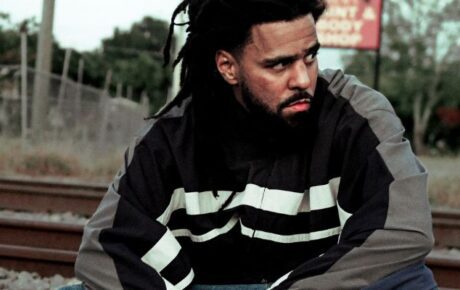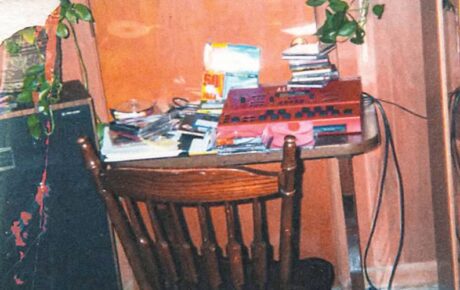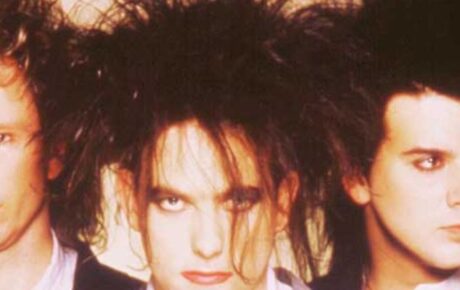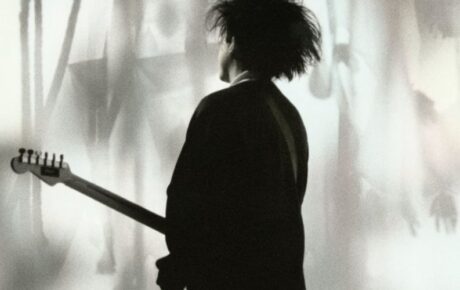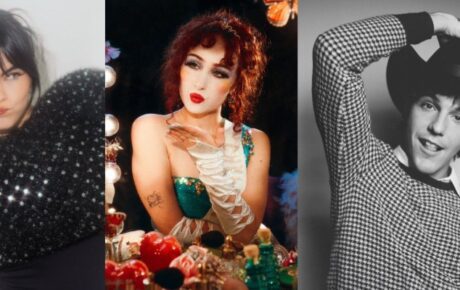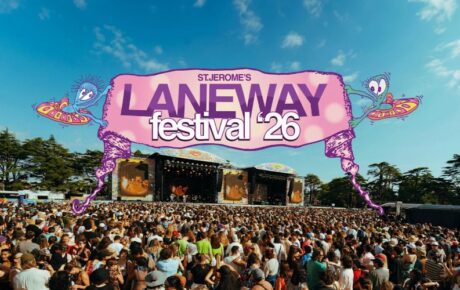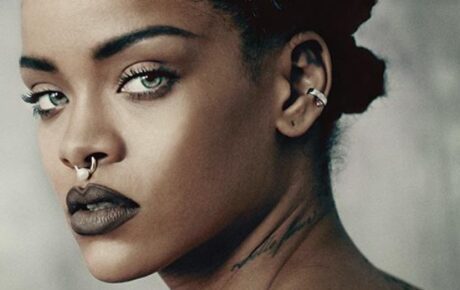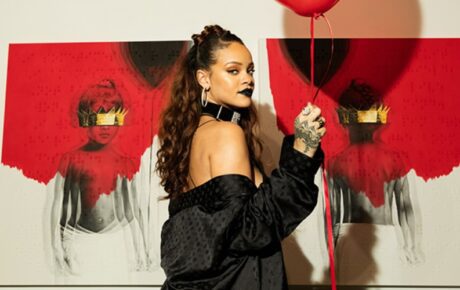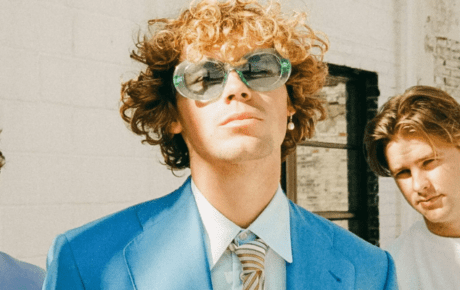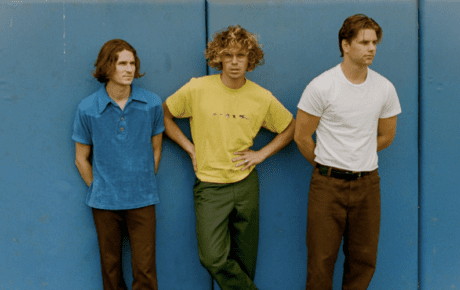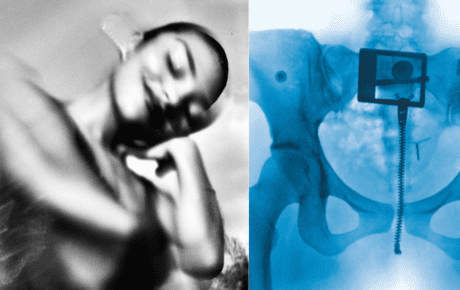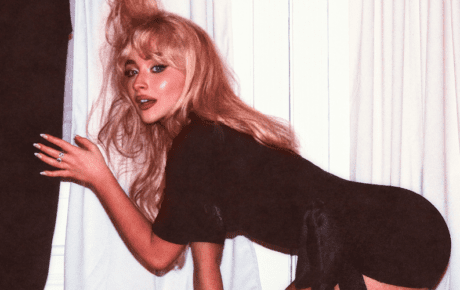Ever since releasing the world’s first-ever commercial soundtrack over 80 years ago, for the music from Snow White And The Seven Dwarfs, the anticipation surrounding each new Disney film is as much for the music as it is for the stunning animations. Globally adored hits such as “The Bare Necessities” and “A Whole New World” have spanned generations, and it’s no accident that, over the years, Disney soundtracks have attracted artists likes of Elton John and Phil Collins. Rightfully showered with plaudits from both the film and music industries, the best Disney songs have racked up the Grammys, Golden Globes, and Academy Awards with each new film, and have become a part of our cultural fabric.
Be Our Guest (Beauty and the Beast, 1991)
Composed and written by Alan Menken and Howard Ashman, respectively, “Be Our Guest” is Lumière (Jerry Orbach) and Mrs. Potts’ (Angela Lansbury) enthusiastic welcome to Belle as she settles into the Beast’s castle. Having traded her freedom for her father’s, and finally freed from Gaston’s incessant pursuit of her hand in marriage, Belle finds herself in the unfamiliar position of being served rather than waiting upon others. “Be Our Guest” was one of three Beauty and the Beast songs to be nominated for Best Original Song at the 1992 Academy Awards, though it lost out to the film’s title track.
When You Wish Upon a Star (Pinocchio, 1940)
Cliff Edwards’ delightful performance of “When You Wish Upon a Star” as Jiminy Cricket bookends the 1940 film Pinocchio. Written by Leigh Harline and Ned Washington, and produced by Ted Kryczko, it has become the Walt Disney Company’s representative song, appearing alongside Disney’s production logos at the beginning of many of the company’s films. In 1940, “When You Wish Upon a Star” became the first Disney song to win an Oscar when it took home the Academy Award for Best Original Song.
Friend Like Me (Aladdin, 1992)
Robin Williams’ enchanted performance of “Friend Like Me” as the Genie in the 1992 film Aladdin not only won over a skeptical Aladdin, who had just stumbled upon the ethereal being, but also film audiences around the globe. The Genie’s over-the-top display of his magical abilities performed to the Howard Ashman and Alan Menken-penned tune, garnered “Friend Like Me” a nomination for Best Original Song at the 65th Academy Awards. The song was later performed by Will Smith in the film’s 2019 live-action remake.
Hakuna Matata (Lion King, 1994)
The comedic duo Timon and Pumbaa (voiced by Nathan Lane and Ernie Sabella) stay in high spirits throughout The Lion King thanks to their Swahili mantra, Hakuna Matata, which translates to “no worries.” Written by Tim Rice and composed by Elton John, the duo console a growing Simba, voiced first by Jason Weaver and later in the song by Joseph Williams, with promises of better days. “Hakuna Mata” was one of the many songs from the film that received an Oscar nom.
Go The Distance (Hercules, 1997)
“Go The Distance” was written by David Zippel and Alan Menken for the 1997 film Hercules. Performed by Roger Bart as Hercules, the song represents the young teenager’s yearning to know where he belongs as he begins to discover the truth of his past. The Hercules soundtrack features a rendition of “Go The Distance” that was produced and performed by Michael Bolton and a Spanish-language cover of the song was later recorded and released by Ricky Martin.
Under the Sea (The Little Mermaid, 1989)
In the 1989 film The Little Mermaid, a persuasive crab named Sebastian, voiced by Samuel E. Wright, performs the Afro-Caribbean song “Under The Sea” in an effort to remind a stubborn Ariel of all that undersea life has to offer. Written and composed by Howard Ashman and Alan Menken, the song was awarded Best Original Song at the 1989 Academy Awards and Best Song Written for Visual Media at the 1991 Grammy Awards.
One Jump Ahead (Aladdin, 1992)
Written and composed by Tim Rice and Alan Menken, respectively, “One Jump Ahead” serves as an introduction to Aladdin’s eponymous lead character as a stealthy young man who has to steal to survive, much to the disapproval of the townspeople. In the 1992 film, the song is performed by Brad Kane as Aladdin and his only friend, a pet monkey named Abu, maneuver their way out of the town square while being chased by angry guards. Once he’s made his getaway, a reprise of “One Jump Ahead” finds a somber Aladdin reflecting on the disconnect between how he’s seen and who he is.
A Dream Is a Wish Your Heart Makes (Cinderella)
Written and composed by Mack David, Al Hoffman, and Jerry Livingston, “A Dream Is A Wish Your Heart Makes” sets a hopeful tone that threads through the entirety of Cinderella. Voiced by Ilene Woods and Lily James in the film’s 1950 and 2015 renditions, respectively, the song finds the heroine Cinderella uplifting her animal companions with the hope that their dreams may one day come true.
Reflection (Mulan, 1998)
Sung by “Disney Legend” and Broadway star Lea Salonga, “Reflection” served as the musical lynchpin to the story of Mulan. After a potential suitor tells young Fa Malun that she will never bring honor to her family, Mulan sings of the disconnect between who she truly is and who she must portray herself as. A rendition of “Reflection” was also recorded and released by Christina Aguilera, coinciding with the release of the film’s official soundtrack, serving as the young singer’s debut single.
I Just Can’t Wait to Be King (Lion King, 1994)
“I Just Can’t Wait to Be King” once again finds Elton John and Tim Rice shaping one of the most memorable musical moments in the Lion King franchise. Performed by Jason Weaver’s Simba, Rowan Atkinson’s Zazu, and Laura Williams’ Nala, the song encapsulates a bright hope for Simba’s future as king, preceding the tumultuous journey he is met with soon after its appearance early in the film. The track was produced by Mark Mancina and has been brought to life off-screen in covers by pop musicians Aaron Carter and Allstar Weekend.
Kiss the Girl (The Little Mermaid, 1989)
On “Kiss The Girl,” one of Disney’s most famous love songs, Samuel E. Wright’s Sebastian plays matchmaker, pushing Prince Eric to make a move on Ariel before he misses his chance. Howard Ashman and Alan Menken return as the song’s respective writer and composer drawing from more Afro-Caribbean calypso influences. “Kiss The Girl” received a nomination for Best Original Song at the Golden Globes as well as the Academy Awards, though it was beat out at both ceremonies by “Under The Sea” from the same film.
I See the Light (Tangled, 2010)
Rapunzel and Flynn Rider (played by Mandy Moore and Zachary Levi) perform the Tangled duet “I See The Light” as the duo’s rocky journey brings them to the long-awaited lantern-lighting ceremony. Written and produced by Glenn Slater and Alan Menken, the song was nominated for Best Original Song at the 2011 Academy Awards and Golden Globes, and nabbed a Grammy win that same year.
You’re Welcome (Moana, 2016)
In the 2016 film Moana, Dwayne “The Rock” Johnson voices the burly demigod Maui whose striking musical number “You’re Welcome” distracts Polynesian princess Moana as he attempts to make off with her boat and leave her stranded. Writer and producer Lin-Manuel Miranda was inspired by Johnson’s wrestling history as a performer on WWE and composed the standout track around the actor’s vocal range.
Poor Unfortunate Souls (The Little Mermaid, 1989)
Voiced by Pat Carroll, Ursula the Sea Witch introduces burlesque to Broadway on the Alan Menken and Howard Ashman number “Poor Unfortunate Souls” in a standout Little Mermaid moment. As Carroll debated taking on the role of the undersea villain, Ashman recorded a rendition of the song that ultimately won her over. “Poor Unfortunate Souls” was subsequently covered by the Jonas Brothers and on Broadway by Queen Latifah.
I Wanna Be Like You (The Jungle Book, 1967)
Richard Sherman and Robert Sherman penned “I Wanna Be Like You” for the 1967 film The Jungle Book. Performed by Louis Prima and Phil Harris as King Louie and Baloo, the song pulls heavily from jazz influences that contrast the score originally composed by Terry Glikyson. The scat break following the instrumental section encapsulates the traditional jazz spirit of the song performed as King Louie, who names himself the “King of the Swingers.” Cover versions of “I Wanna Be Like You” have also been faithfully done by Fall Out Boy, Smash Mouth, and the Jonas Brothers.
Once Upon a Dream (Sleeping Beauty, 1969 and Maleficent, 2014)
Written by Jack Lawrence and Sammy Fain, “Once Upon a Dream” first appeared in the 1959 animated film Sleeping Beauty with production from George Bruns. Built around a melody from composer Pyotr Ilyich Tchaikovsky’s ballet The Sleeping Beauty, the song soundtracks Princess Aurora and Prince Phillip, voiced by Mary Costa and Bill Shirley, as they fall in love. In Maleficent, the 2014 live-action remake with a dark twist, the soundtrack version of “Once Upon a Dream” is performed by Lana Del Rey.
Be Prepared (Lion King, 1994)
The Hans Zimmer-produced “Be Prepared” recruits a grand line-up of actors, including Jeremy Irons, Cheech Martin, Whoopi Goldberg, and Jim Cummings. The song, written and composed by Tim Rice and Elton John, invites the main Lion King villain to center stage. In it, Scar, voiced by Irons, details his scheme to eliminate Mufasa and Simba to a scathing audience of wicked hyenas.
Supercalifragilisticexpialidocious (Mary Poppins, 1964)
More than a not-so-simple mouthful of a word, “Supercalifragilisticexpialidocious” appears in the 1964 film Mary Poppins where Julie Andrews and Dick Van Dyke perform the track written by brothers Richard and Robert Sherman. In the film, the word is the only term Mary Poppins deems all-encompassing enough to describe her emotions after winning a horse race. Though the exact origin of supercalifragilisticexpialidocious is unclear, it is nevertheless considered one of the longest English words at 34 characters.
Almost There (The Princess and the Frog, 2009)
Performed by Anika Noni Rose in The Princess and the Frog, “Almost There” finds Tiana preparing to open her first restaurant in New Orleans, something she has dreamed of since she was a child. Written and produced by Randy Newman, the jazz song was nominated for Best Original Song at the 2010 Academy Awards alongside “Down in New Orleans,” the R&B track performed by the legendary Dr. John that opens the film.
Cruella De Vil (One Hundred and One Dalmatians, 1961)
Written by Roger Radcliffe and performed by Bill Lee, “Cruella De Vil” is the theme song of the One Hundred and One Dalmatians’ villainous protagonist of the same name. The jazz-influenced song appears early in the film before Cruella De Vil’s evilest intentions are made known, foreshadowing the central plot of the movie. One of the most famous Disney villain songs, “Cruella De Vil” has been covered by Selena Gomez, Hayden Penettiere, and more.
I Won’t Say (I’m in Love) (Hercules, 1997)
Alan Menken and David Zippel once again joined forces on the Motown-influenced Hercules song “I Won’t Say (I’m in Love).” Performed by Susan Egan as the strong-minded Meg, the song finds the cynical character mocking traditional love song tropes as she denies the possibility that she has fallen for Hercules. “I Won’t Say (I’m in Love)” features backing vocals from a handful of female vocalists who recreate the feeling of performances by girl groups of the 1960s.
Do You Want to Build a Snowman? (Frozen, 2013)
Songwriters Kristen Anderson-Lopez and Robert Lopez co-produced “Do You Want to Build a Snowman” with Christophe Beck, Chris Montan, and Tom MacDougall for the pivotal moment in 2013’s Frozen where Anna yearns for the company of her self-isolated sister Elsa. Since appearing in the film, the song has taken on a life of its own in the pop culture sphere of holiday music as the second best-selling holiday digital single of all time under Mariah Carey’s hallmark “All I Want For Christmas Is You.” “Do You Want To Build A Snowman” is performed in Frozen by Kristen Bell, who voices Anna, Agatha Lee Monn, and Katie Lopez.
Out There (The Hunchback of Notre Dame, 1996)
Written and composed by Stephen Schwartz and Alan Menken, “Out There” appears in the 1996 film The Hunchback of Notre Dame as a secluded Quasimodo, voiced by Tom Hulce, and a secretive Judge Claude Frollo, voiced by Tony Jay, contemplate the ramifications of Quasimodo leaving the bell tower in which he’s held. While Frollo sees it as an incontestably bad idea, thinking the worst of how the people of Notre Dame would react to such a sight, Quasimodo glamorizes the notion – imagining all the potential ways he may be welcomed into the outside world.
Everybody Wants to Be A Cat (The Aristocats, 1970)
The Aristocats soundtrack cut “Everybody Wants to Be A Cat” recruits a grand line-up of performers including Scatman Crother, Phil Harris, Thurl Ravenscroft, Robie Lester, and Liz English. Written and composed by Floyd Huddleston and Al Rinker, the jazzy track finds Scat Cat, Thomas O’Malley, Billy Boss the Russian Cat, Duchess, and Marie boasting about the traits of being a cat that others tend to envy.
Un Poco Loco (Coco, 2017)
Coco is a 3D animation based on the Mexican Day Of The Dead. The plot revolves around Miguel Rivera, a 12-year-old boy who finds himself in the afterlife and enlists the help of his musician great-great-grandfather to get him home. Of course, it wouldn’t be a Disney film if Miguel and his deceased relative didn’t stop at every possible opportunity to perform a plethora of catchy hits – and we’re more than happy that they do. The all-Latino cast delivers an incredible soundtrack, with a score composed by Michael Giacchino; among the delights are “Un Poco Loco,” written by Germaine Franco and Adrian Molina.
Part Of Your World (The Little Mermaid, 1989)
“Part Of Your World” is Ariel’s big ballad about her desire to join the human world, but it almost didn’t make it into the film. During a test screening, the young children in the audience became restless and rowdy during the scene in which it featured, causing former Disney chairman Jeffrey Katzenberg to call for the song to be shortened or cut. However, the song’s composer, Alan Menken, and lyricist Howard Ashman, resisted doing this until the film was more finalized. During a second screening, with the film now colorized and polished, the new test audience liked the song, and “Part Of Your World” remained. The original version of the song is sung by Jodi Benson and received applause at one of the early public screenings.
Let It Go (Frozen, 2013)
There are no words to describe the phenomenon that was, is, and probably forever will be Frozen’s “Let It Go.” As soon as you see the song title, you can already hear the chorus belting out in your head. Written by husband-and-wife songwriting duo Kristen Anderson-Lopez and Robert Lopez, the song was performed in the film by actress and singer Idina Menzel in her role as Queen Elsa. (A shorter, more pop-friendly version was also recorded by Demi Lovato to play over the film’s closing credits.)
“Let It Go” won the Academy Award for Best Original Song in 2014, the Grammy Award for Best Song Written For Visual Media in 2015, and reached the Top 5 on the Billboard Hot 100 chart. Now with over 900 million YouTube hits, the world has been powerless to stop the snowstorm that was “Let It Go.”
Can You Feel The Love Tonight (The Lion King, 1994)
This iconic ballad from The Lion King was composed by Elton John, with lyrics by Tim Rice. The song is rumored to have been rewritten 15 times to keep up with changes to the film: at first, it was to appear before Simba and Narla met, then after their reunion; at one point it was planned as a Timon and Pumba number. The final version that made it into the film was performed by Kristle Edwards, Joseph Williams, Sally Dworsky, Nathan Lane, and Ernie Sabella, while Elton’s version appeared over the end credits and earned him a Grammy for Best Male Pop Vocal Performance. “Can You Feel The Love Tonight” also won the 1994 Academy Award and Golden Globe for Best Original Song.
How Far I’ll Go (Moana, 2016)
Moana is Disney’s brand new CGI-animated feature film about a daring teenager leaving the safety of her island in order to to save her people. Joined by demigod Maui (voiced by Dwayne Johnson), she faces monsters and impossible odds in this action-packed adventure across the open sea.
“How Far I’ll Go” is Moana’s song and is just as motivational and inspiring as we’ve come to expect from Disney anthems. Written by Tony- and Grammy-winning songwriter and composer Lin-Manuel Miranda, it calls for adventure and puts a modern twist on what feels like a classic 90s Disney song. Auli’I Cravalho sings the film version of the single, while the end-credit version is performed by Canadian singer-songwriter Alessia Cara. Known for her multi-platinum singles “Here” and “Wild,” Cara is also a Juno Award winner for Breakthrough Artist Of The Year, and a 2016 American Music Award nominee for New Artist Of The Year.
A Whole New World (Aladdin, 1992)
This classic ballad between main characters Aladdin and Jasmine was originally sung by Brad Kane and Lea Salonga. The soundtrack won composer Alan Menken and lyricist Tim Rice a string of awards, including an Academy Award and Golden Globe for Best Original Song, and it was also the first and only Disney song to win a Grammy Award for Song Of The Year. According to Glen Keane, lead animator for the character of Aladdin, Disney wanted to write a leading male with more depth than their usual princes; he could “never understand why Snow White and Sleeping Beauty fell for those cardboard symbols.” “A Whole New World” reveals Aladdin to be bold, daring and loveable, and not just your usual Prince Charming on a white horse (or, in this case, magic carpet).
Beauty And The Beast (Beauty And The Beast, 1991)
Written by composer Alan Menken and lyricist Howard Ashman, “Beauty And The Beast” was originally recorded by Angela Lansbury, who voiced Mrs. Potts in the movie. However, Lansbury was hesitant about recording the song, as she worried her singing voice was no longer strong enough for it. Despite Lansbury’s suggestion that the songwriters find someone else, Menken and Ashman encouraged her to sing it “the way she envisioned it.” The song was later recorded as a pop duet between Céline Dion and Peabo Bryson, and released as the only single from the film’s soundtrack.
I’ll Make A Man Out Of You (Mulan, 1998)
Composed by Matthew Wilder and written by lyricist David Zippel, “I’ll Make A Man Out Of You” is performed by character Captain Li Shang during a military training montage. Donny Osmond was chosen to sing as the character of Shang, as he had a similar voice to BD Wong, who provided the character’s speaking voice. (Osmond had previously auditioned to play the titular hero of Disney’s 1997 movie of Hercules.)
You’ll Be In My Heart (Tarzan, 1998)
Written and performed by Phil Collins for 1998’s Tarzan, “You’ll Be In My Heart” was a response to Disney’s request for a song with a “strong jungle beat” to accompany the titular hero’s adventures, and is one of the five original songs written by Collins for the film. The majority of the song is said to have been written at a Christmas party, when Phil wrote down the chords and melody on the back of some wrapping paper while playing piano at a friend’s house.
Colors Of The Wind (Pocahontas, 1995)
Originally recorded by Pocahontas voice actress Judy Kuhn, “Colors Of The Wind” was later re-recorded by Vanessa Williams and released as a single. Written by lyricist Stephen Schwartz and composer Alan Menken, the song is Pocahontas trying to explain to Captain John Smith the animism of Native America and convince him that nature is not something to be bought or conquered, but something to be respected and conserved. “Colors Of The Wind” won both the Academy Award and Golden Globe for Best Original Song, as well as the Grammy Award for Best Song Written For A Movie.
Heigh-Ho (Snow White And The Seven Dwarfs, 1937)
Released in January 1938, several weeks after the movie entered cinemas, Songs From Walt Disney’s Snow White And The Seven Dwarfs (With The Same Characters And Sound Effects As In The Film Of That Title) was the first-ever commercially issued film soundtrack. The musical score was composed by Paul J Smith and Leigh Harline, and the songs on the album were written by Larry Morey, Frank Churchill, and Leigh Harline. “Heigh-Ho” is arguably the most recognized song from the film and is sung by the dwarves as they head to work down the mine.
The Bare Necessities (The Jungle Book, 1967)
Written by Terry Gilkyson and sung by Phil Harris as Baloo, with Bruce Reitherman as Mowgli, “The Bare Necessities” is about appreciating the simpler things in life. It is taken from Disney’s 1967 feature, The Jungle Book, which was the last animated film that Walt Disney himself worked on before his death.
The filmmakers originally wanted The Beatles to voice the four vultures in the film, but due to either a clash of schedules, or (if the rumors are to be believed) John Lennon’s refusal to partake, this was never to be.
You’ve Got A Friend In Me (Toy Story, 1996)
Originally intended to be the theme for the first film in Pixar’s Toy Story series, “You’ve Got A Friend In Me” has since become the theme song for the entire franchise. Written and performed by Randy Newman, the song was nominated for both the Academy Award and Golden Globe for Best Original Song, but lost out on both – to another Disney classic, Pocahontas’ “Colors Of The Wind.”
Circle of Life (Lion King, 1994)
Composed by Elton John and written by Tim Rice for 1994’s The Lion King, “Circle of Life” soundtracks one of the most striking moments in the film (and cinema at large) as baby Simba is lifted towards the sky by Rafiki in the opening scene. The strength of the song lies in Lebo Morake’s Zulu chant that builds and builds over the Hans Zimmer production. By the time singer Carmen Twillie’s vocals kick in on the chorus, your jaw is on the floor.
Article originally published on uDiscoverMusic.com.
SEE ALSO: The Singers Behind The Best Disney Songs
Liked this article? Sign up to our UMUSIC newsletter to hear more from us!

